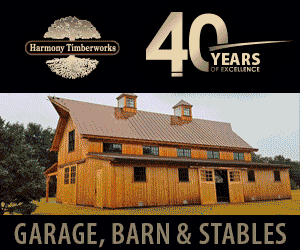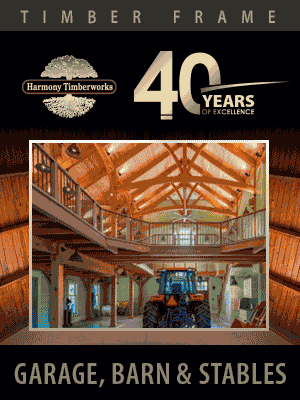By David Rogers. BOONE, N.C. — When I was growing up in Bakersfield, Calif., the concept of team was not lost on me but playing sports was personal. That’s because I didn’t have a chance to participate in school sports other than in recess.
It wasn’t that I was devoid of athletic ability. No, it was just because we lived 15 miles out in the middle of the oilfields where my father worked. I had to take the big yellow bus back and forth to school.
When I broached the idea of riding a bicycle the 15 miles each way, my parents simply said “no.” They said it was too dangerous with the heavy oilfield truck traffic, narrow two-lane highways, and the frequent foggy mornings and nights when “tule fog” enveloped the Central Valley and you couldn’t see the hood ornament on your car, much less a crazy kid up ahead, riding a bicycle on a state or county highway.
Looking back, they were probably right even if the athlete in me felt deprived — and I hated being “economically disadvantaged” and resented where we lived just that much more. Frankly, it was pretty selfish of me to resent what we didn’t have and not appreciate what we did have. As a kid, I didn’t know or understand the significance of my being only one generation removed from the Dust Bowl migration that my parents and their siblings somehow survived by migrating from Oklahoma and Texas to Central California as farm and oilfield laborers. They had virtually nothing upon arrival except hopes for something better.
So when I graduated from high school I wanted in the worst way to get out of the area and go to a small college where I might have an opportunity to play sports, if I proved good enough.
I chose an experimental college, Johnston College at the University of Redlands, a private institution about 60 miles directly east of Los Angeles. I remember Redlands as being one of the last outposts of civilization before you got into the Mojave Desert.
From an academic standpoint, Johnston was an intriguing educational model. I was the first freshman admitted to the school and we were even written up in Time magazine (Oct. 3, 1969 issue) as “the most radical experiment in higher education” of the time. It was all about “the living-learning experience.” Looking back, it was radical inasmuch as we designed our own curriculum and students fashioned many of the classes. One of the first mature decisions I made was to transfer after a year, to Claremont McKenna College, because I knew I wasn’t ready for Johnston’s lack of structure.
At Johnston, though, we were able to go out for the larger, University of Redlands athletic teams. One of my first friends in college was a fellow named “Jim” and he was an accomplished high school wrestler. Of course, he encouraged me to join the Redlands varsity team. Me, the wide-eyed freshman who knew little or nothing about wrestling — much less the difference between “riding time” and a “whizzer,” said “yes.”
I bring this up now because in covering the SoCon Wrestling Championships this past weekend hosted at the Holmes Convocation Center, my active mind started reflecting back on my own brief experience in the sport, at the college level, no less. Of course, the guys from Appalachian State, Chattanooga, Campbell, Davidson, Gardner-Webb and the like were far better athletes and much better skilled than the 1969 Redlands team, except for maybe one guy.
Our 142-pounder, Bobby Morrison, was an NAIA All-American all four years while competing for Redlands. He was the captain of our small team. Even though I was brand new to the sport and had no match experience of any kind, I quickly became the No. 2 guy for Redlands in the 157 lb. weight class. That’s only because there was no No. 3 or No. 4.
From time to time, I was pitted against Bobby, the All-American, in our practice bouts. Bobby told me at the end of the season that the thing he hated most about practices that year was when he had to wrestle against me. Now that may seem like a compliment, but it wasn’t really. I had little to no skill, but what I did have was a large wingspan and I was pretty strong. As much as he tried every trick in the book, I never once remember him turning me over for a pin, or what the scorekeepers this Saturday recorded as a “fall.”
Making weight is often a challenge for wrestlers. My normal weight was 165 back then, so getting down to 157 took at least an effort for the lean young man that I now wistfully remember I was. Every week before a meet or tournament, I always made weight — even though there was not a ghost of a chance that I would ever see the mat in competition.
And that is where this life lesson reaches a critical turn. All my Redlands teammates did pretty well at the Southern California Intercollegiate Athletic Conference meet and the next team competition for us was the larger regional competition, the “District” tournament. The NAIA was the larger national organization for the small school athletic conferences back then. The NCAA Division III wasn’t organized for another few years, in 1973. So, for the small colleges and universities, a team qualifying for an NAIA District-level competition was pretty heady stuff.
All of our Redlands team members weighed in successfully for the District meet, except one: “John,” at (you guessed it) the 157 lb. weight class. We scrambled to do everything we could to get his weight down that morning. He did jumping jacks and crunches until he worked up a sweat. He sat in a sauna. And the whole team worked him over with towels, trying to get every speck of water weight off his body.
Our efforts failed. He was still half a pound over when the final weigh-ins came.
And there begins my tale of early regret.
The head coach came to me almost apologetically and said, “Well, David, it is up to you whether you want to take John’s place at 157 lbs. None of us expect you to.” Boy, talk about a confidence builder!
In short, I was paralyzed by the opportunity as well as the coach’s words. He knew damn well that I was nowhere close to being ready for District-level competition. I hadn’t even wrestled in a dual match. I was the tackling dummy for our team practices. It would have been insane for me to go out there and what would surely be an embarrassing first competitive outing.
None of my teammates said a word. No one pressured me because I might deliver a team point or two in someone’s wildest dreams. They also knew it would be like throwing lambs to hungry wolves.
So I declined. Not as a teammate, but as an individual I said “no.” I put my potential individual embarrassment, even if it was certain, ahead of the team’s interests.
Here we are, 54 years later, and I have learned a thing or two about putting personal pride over team goals. Watching the individual App State athletes exult in their individual efforts toward the Mountaineers’ team victory this past Saturday kind of rubbed it in for me. In 1969, I made the wrong choice.
I should have put the potential for individual embarrassment aside. I should have wrestled. I should have competed. That’s what sports is all about. That is what I had trained for. Perhaps a miracle would have happened and I earned the team a point or two. You just never know in sports. That’s why they play the games and don’t let the seedings or reputations determine the winners or losers. If an All-American couldn’t pin me, maybe another guy would have trouble, too.
In retrospect, I lost an opportunity for being the champion of an individual effort for a larger cause. Nobody but me will remember that I chose not to compete at the District tournament. I was an afterthought, at best. But oh, if I had won a round or even two and helped put the team on the victory stand, a few gray-haired old men might still have their tongues a-waggin’ about it.




